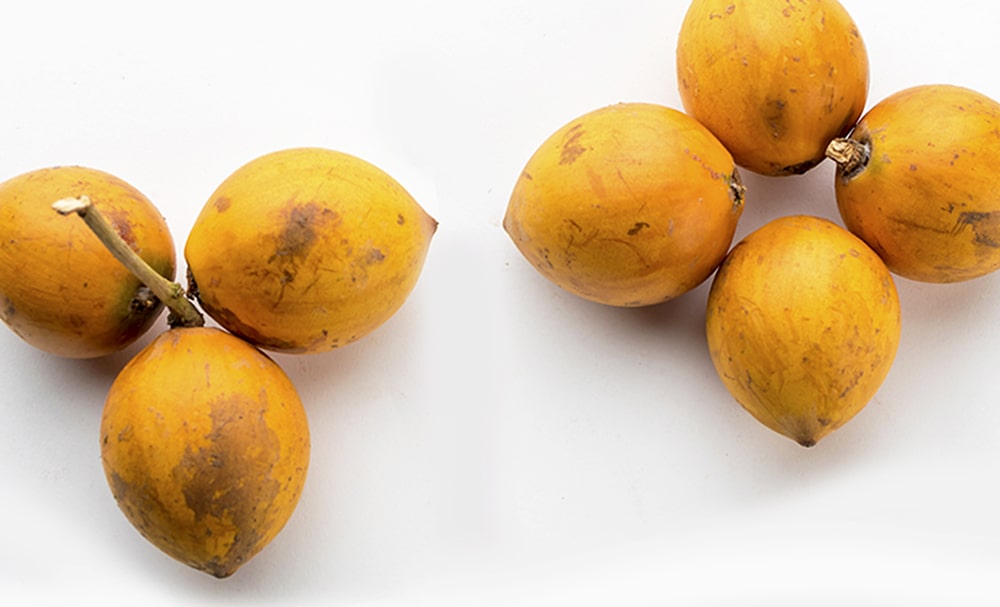Top Six Health Benefits on Alasa (African Star Apple)

The African Star Apple is known in Ghana as Alasa and Nigeria as Agbalumo.
It is called star fruit because of how the seeds form a star at its core. Even at the mention of its name, your mouth gets watery because of its catchy taste.
When the fruit is plucked from its tree before it is properly ripped, it has a sour and acidic taste, preferred by pregnant women, and when it falls from the tree by itself, it has a sweet and slightly sour taste.
The health benefits of the African star fruit are numerous because of the essential nutrients and minerals. Below are a few of them;
A Good Source of Vitamin C
Alasa is a good source of vitamin c, and it helps protect the body against immune system deficiencies, prenatal health problems, and cardiovascular diseases, boosts antioxidant levels, delays aging of the skin, and helps repair body tissues.
There is 25mg of vitamin c per 100gram of fruit. Did you also know that regular consumption of alasa can help keep your eyes healthy and regulate your blood pressure? Vitamin C is also a natural antioxidant that protects against the effects of free radicals.
It is a Natural Remedy
In the past, we did not have hospitals, nor did we use modern-day medicines. Herbalists relied on herbs and fruits such as alasa to treat ailments, and the fruit can treat toothache, sore throat, and gum diseases.
It can also treat constipation and dehydration because it contains alkaloids, tannis, saponins, flavonoids, and terpenoids. According to a study by Dr. Christopher Larbi and his research team at Kwame Nkrumah University of Science and Technology (KNUST), these ingredients are proven to have numerous medicinal properties.
The bark of the alasa tree is boiled to treat yellow fever and malaria, while the leaves of the plant are ground and used for treating wounds, stomach aches, and even diarrhea.
Pregnant Women Love it.
Alasa has an acidic and sour taste, especially if plucked from the tree. That is why pregnant women love it, it helps with their morning sickness or anytime they may feel nausea because of increased salivation.
The insides of the alasa fruit can also double as chewing gum. Alasa also helps improve digestive enzymes’ activity to promote gastrointestinal mobility, and it is also a remedy for lowered blood sugar.
Helps Protect the Heart
The fruit is particularly low in sodium, but it is high in potassium and calcium, making it an ideal fruit for people with high blood pressure and who need to reduce their salt intake. Because it is high in dietary fiber, it helps lower the risk of hypertension, stroke, cancer, diabetes, cancer, and other metabolic disorders.
- Advertisement -
Prevents Anemia
When the body does not have enough iron, it is termed iron deficiency, and it can cause dizziness, weakness, loss of appetite, rapid heartbeat, headache, fatigue, and shortness of breath. Do those symptoms sound familiar? Alasa has iron content that is necessary for the body to produce hemoglobin, prevent iron deficiency anemia, and keep you healthy.
Maintain Strong Bones and Teeth and Help with Weight Loss
Alasa contains calcium and phosphorus minerals that help maintain strong bones and teeth. Regular intake of alasa helps to avoid numerous bone diseases.
Because of the low amount of carbohydrates it contains is good for people who want to reduce some weight. It also contains a high amount of fiber that improves satiety, making you feel satisfied even after a long time.
The Nutritional Value of Alasa
- Energy – 91.09 Kcal
- Carbohydrates – 10.49g
- Protein – 6.99g
- Total Fat – 2.49g
- Moisture – 73g
- Vitamin C – 25g
- Vitamin B3 – 1.137g
- Vitamin B1 – 0.049mg
- Vitamin B2 – 0.038mg
- Iron – 0.49g
- Total Dietary Fiber – 1.92mg
- Phosphorus – 18.95mg
- Tryptophan – 0.004g
- Lysine – 0.022g
- Methionine – 0.022g
- Calcium – 12.35g
It takes ten years for young alasa seedlings to mature. It blooms every December and lasts up to April the next year. The fruit can also be made into drinks, used in fruit mix, and enjoyed. The fruit should also be enjoyed without the skin and seeds.
The seeds are used as anklets and used in musical performances in some parts of Nigeria and also used by children to play games.
Because of its sour nature, one cannot dig into the fruit to eat it, and he must first suck it at the top to remove all sour and sweet liquid before eating the roughage, which turns into natural chewing gum after chewing it for a while.
Takeaway
When you purchase alasa by the street or in the market, remember the nutritional values and health benefits and buy a little more.


